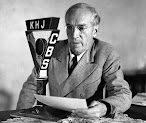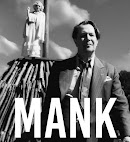The new David Fincher film Mank, which just arrived on Netflix this month--and already touted as a likely "Best Picture" nominee at next year's Oscars--pivots around a key story line in one of my books, The Campaign of the Century: the
wild 1934 race for governor by leftwing muckraker Upton
Sinclair on an End Poverty in California (EPIC) platform.
That book was recently picked by the Wall St. Journal as one of the five greatest books ever on any campaign (you can order print oe e-book edition here). Earlier it won the Goldsmith Book Prize. Jill Lepore at The New Yorker called it "a compelling account not long ago" and Charles P. Pierce this week hailed it as "magnificent."
See my New York Times piece on all this and more this week.
Amazingly, Sinclair swept the Democratic primary, after inspiring an astounding mass movement, known as EPIC for End Poverty in California. (By the way, my only email address ever: Epic1934@aol.com). He seemed headed for victory when Republicans, moderate Democrats, and big business types rallied to defeat him. In the process they invented the modern political campaign as we know it, dominated by massive funding, outside consultants, attack ads on the small screen and "spin doctors."
In the forefront in 1934: Hollywood, then quite conservative, as studio bosses enacted forced donations from all employees. Notably, MGM, under orders from the hallowed Irving Thalberg and rightwinger Louis B. Mayer, produced a series of bogus newsreels--the first use of the screen to destroy a candidate--that scuttled Sinclair for good. (See below for MGM's phony Inquiring Reporter shorts with some of the "typical" voters played by actors working off scripts.)
Now Fincher in exploring how Herman "Mank" Mankiewicz came to write Citizen Kane (while worried that he will never get the credit he deserves), concentrates on his relationship not with Welles but with the man who served as the model for the title character, William Randolph Hearst, who also played a key role vs. Sinclair. Along the way, Sinclair looms large, with Mank ultimately deciding to devote his limited energy to Kane after being appalled by the actions of MGM and Hearst in that campaign. It's a true "pivot point" and resonant today in this time of charges of "fake news" not to mention candidates being maligned as "socialists."
Fincher has said, "Mank depicts their alliance with Hearst to bring down Sinclair as a major motive for the disgust that spurred Mankiewicz to write Citizen Kane. Once the Sinclair story was grafted on, we found a middle ground where we felt we had a more accurate portrayal of what really happened."
Many will chuckle when you see who very briefly appears as Sinclair--he's not in the credits--although some will not recognize him, as shot from the side at a distance. It's Bill Nye, "The Science Guy." You can order the book or ebook here.


No comments:
Post a Comment